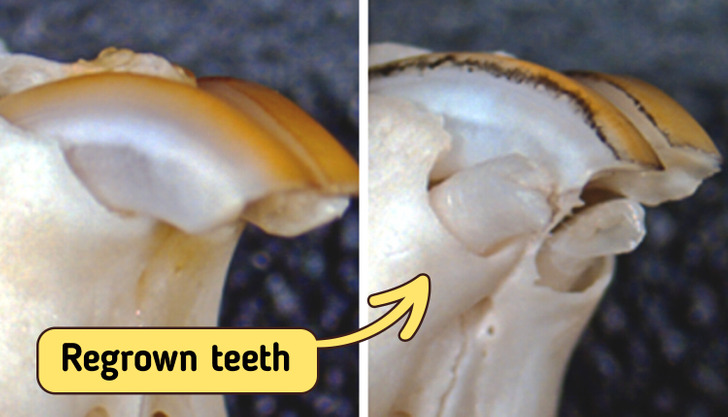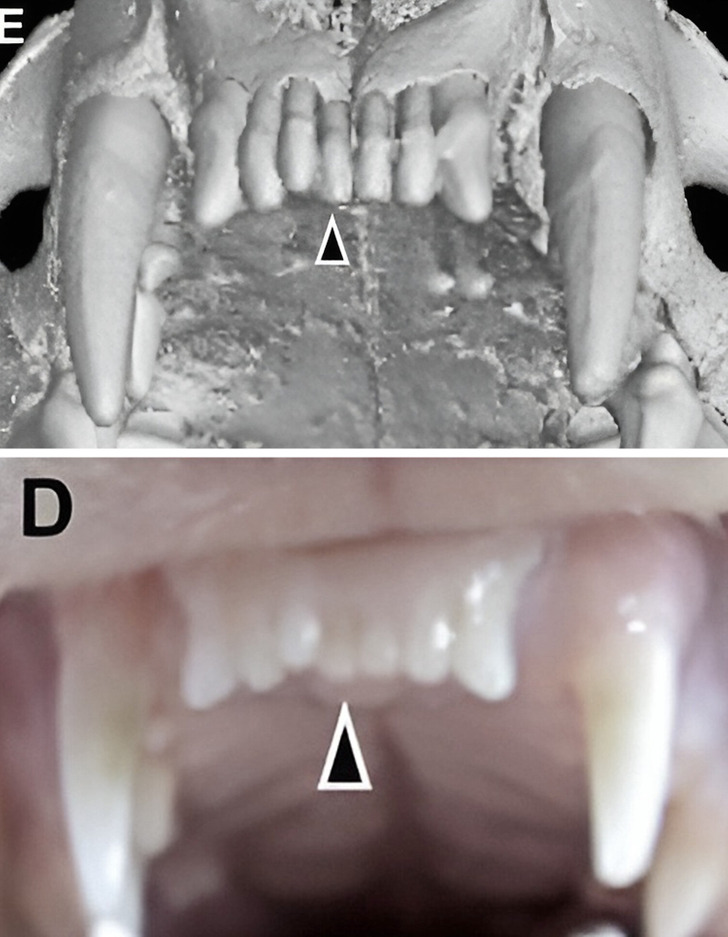The tooth fairy is a welcome guest for any child who has lost a tooth. Not only will the fairy leave a small gift under the child’s pillow, but they be assured of a replacement tooth in a few months. Unfortunately, the scenario is quite different for adults grappling with a loss of teeth. Luckily, there may be some hope thanks to a new study performed by scientists at Kyoto University and the University of Fukui.
A dental breakthrough
While the typical adult mouth houses 32 teeth, approximately 1% of the population exhibits variations of them, either possessing more or fewer teeth due to congenital conditions. Researchers have delved into the genetic factors behind cases of excessive teeth, seeking valuable insights into the potential regeneration of teeth in adults. This study is the first to show that monoclonal antibodies can help regrow teeth. It suggests a new way to treat a dental problem that currently requires implants and other artificial solutions.
A bit of science
The research team disclosed that an antibody targeting a specific gene, known as uterine sensitization-associated gene-1 (USAG-1), can induce tooth development in mice affected by tooth agenesis, a congenital condition. The findings were published in the journal, Science Advances.
As per Katsu Takahashi, a senior lecturer at the Kyoto University Graduate School of Medicine and one of the principal contributors to the study, the essential molecules crucial for the development of teeth have already been pinpointed. “The morphogenesis of individual teeth depends on the interactions of several molecules including BMP, or bone morphogenetic protein, and Wnt signaling,” says Takahashi.

On April 13, 2021, the University of Kyoto posted its first pic of newly-grown teeth in mice.
BMP and Wnt are involved in more than just tooth development; they affect the growth of organs and tissues early in the body’s development. Because drugs affecting them directly might have broad side effects, scientists are cautious. To find a potentially safer method, researchers focused on the gene USAG-1, thinking that aiming at factors countering BMP and Wnt specifically in tooth development could be more precise.
“We knew that suppressing USAG-1 benefits tooth growth. What we did not know was whether it would be enough,” added Takahashi.
The first results
Scientists looked at how different monoclonal antibodies affect USAG-1. Monoclonal antibodies are often used to treat things like cancer and arthritis and for making vaccines. Tests with this antibody showed that BMP signaling is crucial for deciding the number of teeth in mice. Also, just one treatment was enough to grow a whole tooth. Further tests confirmed these positive results in ferrets too.
“Ferrets are diphyodont animals with similar dental patterns to humans. Our next plan is to test the antibodies on other animals, such as pigs and dogs,” explained Takahashi.

Fully regrown frontal teeth in ferrets
The next steps

Now, scientists are going to test the drug on healthy adults. If that goes well, the team plans to try it on kids aged 2 to 6 with a rare tooth problem called anodontia, a genetic disorder defined as the absence of all teeth. These kids will get one shot of the drug to see if it makes their teeth grow. If everything works out, the medicine might be approved by 2030.
Takahashi sees the new medicine as an additional choice for individuals who are missing some or all of their teeth.
“The idea of growing new teeth is every dentist’s dream,” Takahashi told the Japanese newspaper, The Mainichi in June this year. “I’ve been working on this since I was a graduate student. I was confident I’d be able to make it happen.”
So hopefully, by the year 2030, humans will get a chance to have their third generation of teeth grown and say goodbye to implants. Until then, make sure to keep your teeth strong and healthy — this article will help you with that.
Preview photo credit KyotoU_News / Twitter
Neighbor Wouldn’t Turn Off His Bright Floodlights at Night, I Deftly Managed the Situation and Maintained Harmony

When my neighbor wouldn’t turn off his bright floodlights at night, my husband and I needed a clever solution to keep the peace.
When the Thompsons moved in next door, they seemed friendly. My wife, Gia, and Susan, the neighbor, quickly bonded while chatting over unpacked boxes. We thought we finally had some neighbors our age to socialize with. Mark, the husband, was often away for work, while Susan stayed home and had a long list of phobias, including fear of the dark, thunderstorms, snakes, clowns, and spiders.
As time passed, Susan’s fear of the dark created an issue that affected Gia and me. Their floodlights, installed soon after they moved in, were excessively bright, like those outside prisons. Gia joked that they could probably be seen from space.
Despite our attempts to address the issue, Susan insisted she needed the lights on for safety when Mark was away. We tried thick curtains and rearranging our bedroom, but nothing helped. After a week of sleepless nights, I approached Susan, asking her to turn off the floodlights after midnight, as they shined directly into our bedroom. She explained her need for safety and refused my suggestion to install a timer.
After several attempts to reason with her and Mark, who felt similarly protective of Susan, we continued to lose sleep. Frustrated, I considered drastic measures, like unscrewing the bulbs or using a pellet gun, but Gia reminded me to stay calm. Instead, she suggested a harmless plan while she and Susan went out for nails.
The next day, I climbed a ladder and slightly unscrewed each bulb to disrupt the connection. That night, when Susan turned on the lights, they flickered and went out. Gia and I finally enjoyed peaceful sleep. Surprisingly, days turned into weeks, and the lights stayed off.
However, one day, I saw Mark fixing the bulbs again. The floodlights blazed back to life that night, and I knew I had to repeat my trick. This cycle continued for months—every time Mark tightened the bulbs, I loosened them.
Then one Saturday, as I trimmed the hedges, Mark approached me. He mentioned his floodlights kept going out, and I managed to keep a straight face while agreeing it might be due to vibrations from the street. I suggested he could leave them off, and he seemed to consider it. After that conversation, Gia and I enjoyed our peaceful, dark evenings once again.



Leave a Reply